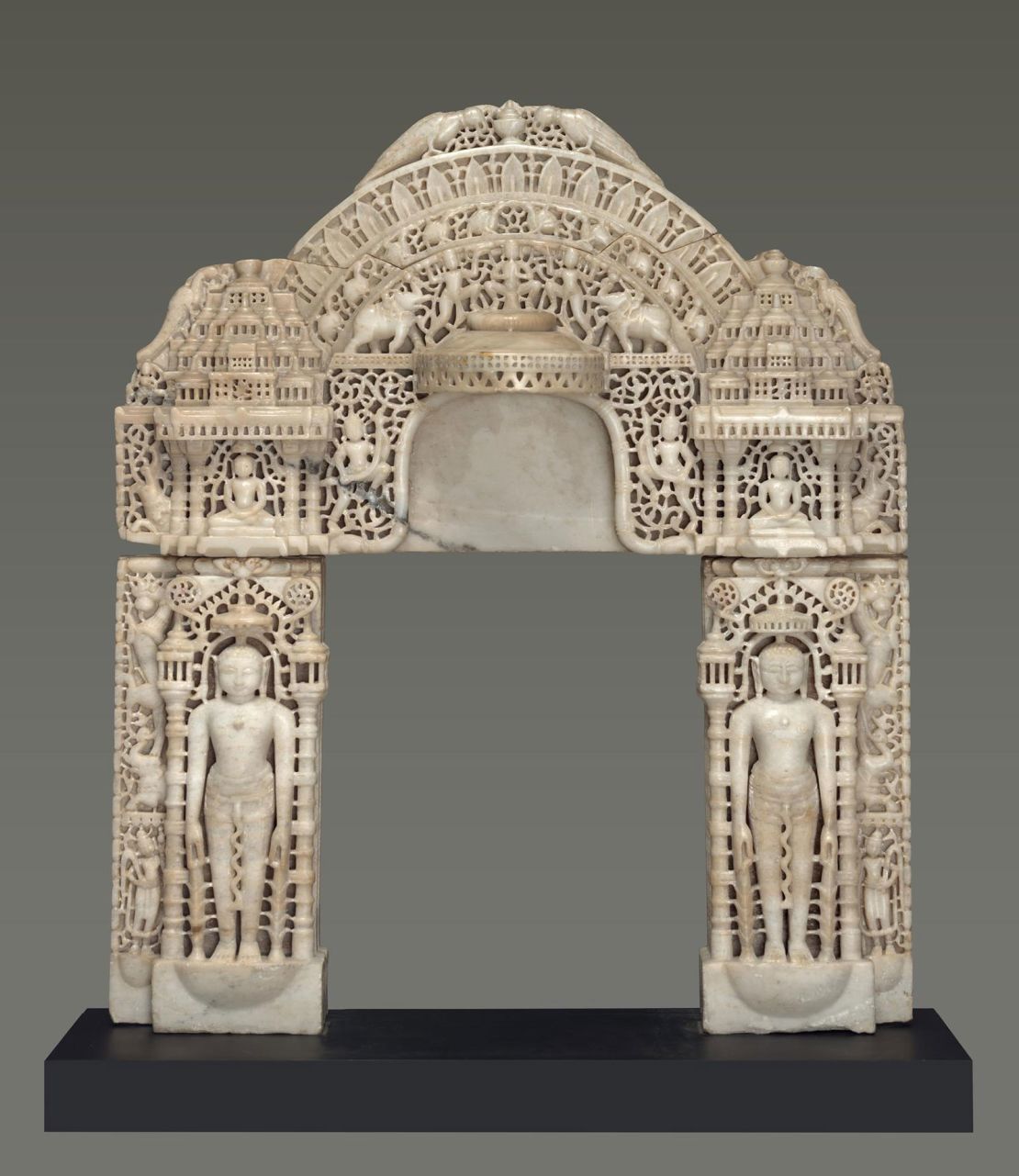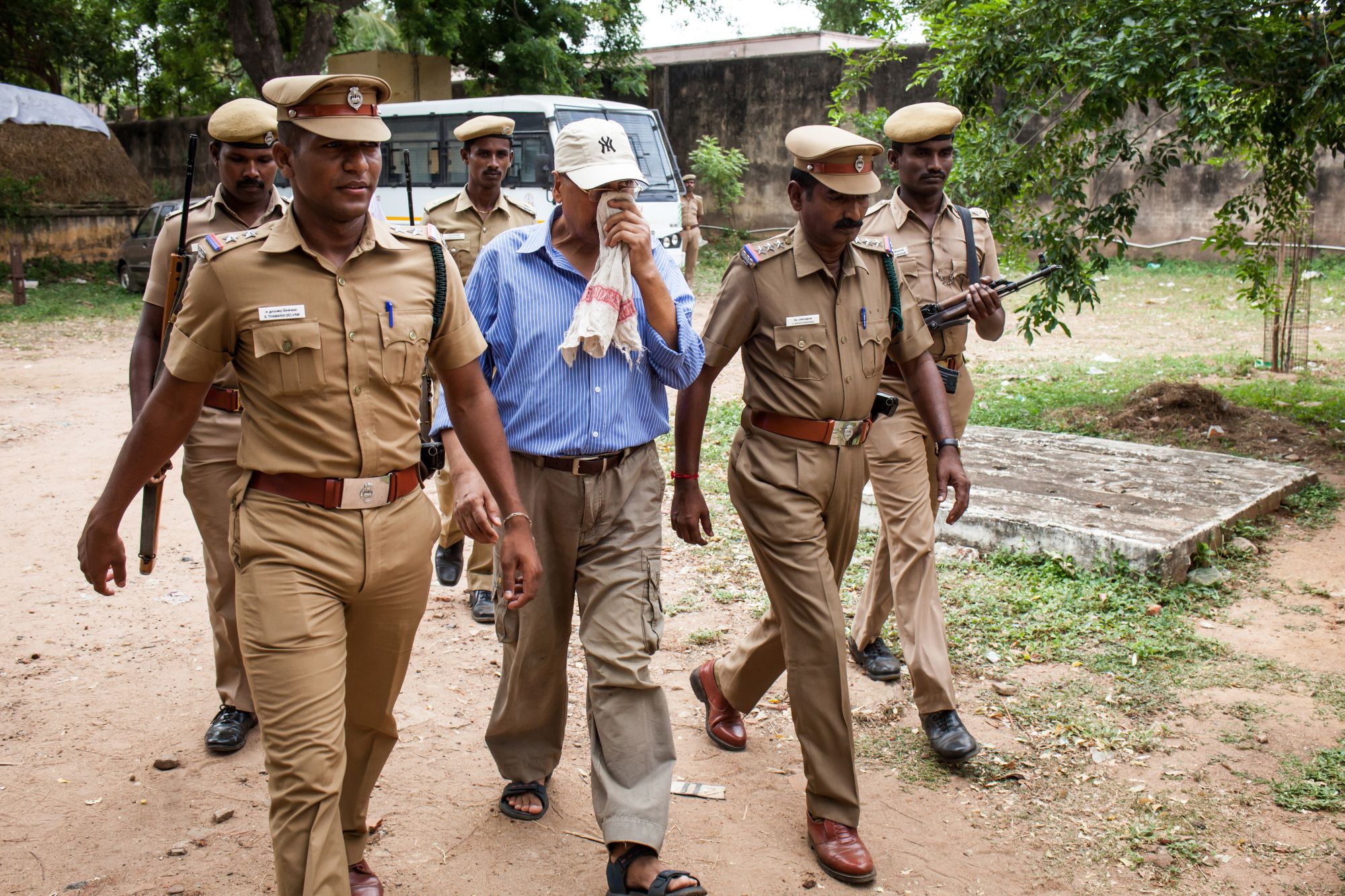A disgraced American antiquities dealer accused of running a multi-million-dollar looting network via his New York gallery was this week sentenced by an Indian court to 10 years in prison for smuggling offenses.
Subhash Kapoor was convicted alongside five accomplices on charges including criminal conspiracy, burglary and the illegal export of 19 artifacts worth over 940 million rupees ($11.4 million), a police spokesperson confirmed to CNN.
The verdict follows a years-long investigation into Kapoor, who stands accused of trafficking thousands of treasures plundered from temples, ruins and archaeological sites across Asia. The Indian American dealer’s looting network is believed to have falsified ancient artifacts’ authentication documents before selling them through his Manhattan gallery, Art of the Past.
Following his arrest in Germany in 2011, Kapoor was sent to face charges in India’s Tamil Nadu state, where his trial commenced last year. Although the dealer has already spent 11 years in prison, he will not walk free following the sentencing, as he has also been indicted in the US on counts including grand larceny, conspiracy, scheme to defraud and criminal possession of stolen property.
As part of an investigation dubbed “Operation Hidden Idol,” the Manhattan District Attorney’s Antiquities Trafficking Unit — a taskforce of lawyers, investigators and art experts — has seized more than 2,500 looted artifacts, worth an estimated $143 million, that are linked to Kapoor. In addition to the 19 items he has now been convicted of smuggling, the dealer has also been accused of handling thousands of other items from countries including Nepal, Cambodia, Pakistan and Afghanistan.

In an emailed statement, a spokesperson for Manhattan District Attorney Alvin Bragg told CNN his office was in contact with the US Department of Justice and Indian authorities about the case. “In 2020 the office filed extradition paperwork for Kapoor and we intend to prosecute him in the United States pursuant to our ongoing investigation,” the spokesperson added.
Kapoor’s New York-based lawyer Georges Lederman confirmed that the dealer will remain in custody in India due to the extradition request. Last year, Lederman told CNN that his client intends to contest the US charges on the grounds that “the underlying conduct he is being charged for in New York is the same for which he has already served (time for) in India.”
Institutions in the US and beyond have already repatriated hundreds of stolen items handled by Kapoor. Just last month, Bragg’s office gave India 235 items linked to the dealer, including an elaborately carved marble archway that had wound up in the collection of the Yale University Art Gallery.
In 2016, at a Washington, D.C. ceremony attended by Indian Prime Minister Narendra Modi, American officials handed India back more than 200 artifacts that had been seized from a shipment imported by Kapoor. The cache, which included religious statues and works of bronze and terracotta, was estimated to be worth more than $100 million at the time.
The Art Gallery of South Australia in Adelaide and the National Gallery of Australia in Canberra have also returned items obtained from Kapoor’s gallery on several occasions. In 2014, Australia’s then-prime minister, Tony Abbott, personally handed over two 900-year-old statues after India made a direct appeal for their repatriation.
Top image: Subhash Kapoor being escorted by police to a court in Tamil Nadu, India, in July 2015.
This article was updated to clarify the grounds of Kapoor’s legal defense.



